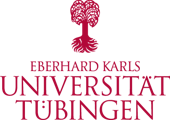Post-doctoral researcher at the Hertie Institute for Clinical Brain Research, University of Tübingen
Radhika Puttagunta is a senior post-doctoral scientist in the Neuroregeneration Lab at the Hertie Institute for Clinical Brain Research. She previously worked on stimulating neurite outgrowth in primary central nervous system neurons with the treatment of retinoic acid which blocked the expression of an inhibitory myelin protein (Lingo-1, part of the Nogo-R complex that inhibits axonal regeneration) as well as studying the role that mitochondrial heat shock protein 70 plays in stress resistance and aging.
Experience
-
2007–presentPost-doctoral researcher at the Hertie Institute for Clinical Brain Research, University of Tübingen
Education
-
2006University of Wisconsin-Madison, PhD and M.S.
-
1998University of Michigan-Ann Arbor, M.S. and B.S.
Publications
-
2013Epigenetic regulation of axon outgrowth and regeneration in CNS injury: the first steps forward., Neurotherapeutics
-
2012Retinoic acid signaling in axonal regeneration., Frontiers in Molecular Neuroscience
-
2011RA-RAR-β counteracts myelin-dependent inhibition of neurite outgrowth via Lingo-1 repression., Journal of Cell Biology
-
2010HDAC inhibition promotes neuronal outgrowth and counteracts growth cone collapse through CBP/p300 and P/CAF-dependent p53 acetylation., Cell Death and Differentiation
-
2009A p53-CBP/p300 transcription module is required for GAP-43 expression, axon outgrowth, and regeneration., Cell Death and Differentiation
-
2003Mutations in a novel gene encoding a CRAL-TRIO domain cause human Cayman ataxia and ataxia/dystonia in the jittery mouse., Nature Genetics
-
2000Comparative maps of human 19p13.3 and mouse chromosome 10 allow identification of sequences at evolutionary breakpoints., Genome Research
- Website
- Article Feed
-
For media enquiries,
radhika.puttagunta@medizin.uni-tuebingen.de - Joined


